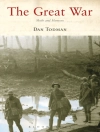Civil Religion – a tradition of political thought that has argued for a close connection between religion and the state – made an important contribution to the development of religious and political thought at key moments of early modern British political and colonial history. As this volume shows, it was at work not just during the Enlightenment, but within a much wider periodical framework: the Reformation, the rise of the Puritan movement, the conflict over the Stuart state and church, the English Revolution, and the formation of key American colonies in the eighteenth century. Advocates of Civil Religion tried to reconcile a national church with religious toleration and design a constitution capable of preventing the church from interfering with affairs of state.
The volume investigates the idea of Civil Religion in the works of canonical thinkers in the history of political thought (Machiavelli, Hobbes, Locke and Rousseau), in the works of those who have been recognized as shaping political ideas (Hooker, Prynne et al.) during this period, and in the advocacy of those perhaps not previously associated with Civil Religion (William Penn). Although Civil Religion was often posited as a pragmatic solution to constitutional and ecclesiological problems created by the Reformation and the English Revolution, they also reveal that such pragmatism was not at odds with religious conviction or ideals. Civil Religion certainly enhanced citizenship in this period, but it did so in ways which depended on the truth claims of Protestantism, not on their domestication to politics.
قائمة المحتويات
List of Contributors
Acknowledgements
Introduction: Civil Religion in the Early Modern Anglophone World – Adam Morton & Rachel Hammersley
1. Civil Religion: Two Traditions – Mark Goldie
2. A Mutable Wall of Separation? Reconfiguring Ecclesiastical Civility, Mixed Polity, and Civil and Sacred Matter in Late Elizabethan England – Polly Ha
3. Alexander Leighton and the Erastian fabric of early Stuart Puritanism – Esther Counsell
4. Reading Machiavellian Civil Religion in Early Modern Britain – Charlotte Mc Callum
5. Republicans and Independents: Debating ‘National Religion’ in Cromwellian England – John Coffey
6. Henry Stubbe and Civil Religion – Connor Robinson
7. Civil Religion on the Ground: Theory and Practice in Early Pennsylvania – Andrew R. Murphy & Christie L. Maloyed
8. John Locke and Civil Religion – John Marshall
9. Civil Religion and Early Modern Views of the Anglo-Saxon Church – Jacqueline Rose
Bibliography
Index
عن المؤلف
Mark Goldie is Emeritus Professor of Intellectual History in the University of Cambridge and a Fellow of Churchill College. He has edited or authored 12 books and published more than 60 essays on British political, religious, and intellectual history in the period 1650-1800. Two of his books are published by Boydell and Brewer: The Entring Book of Roger Morrice and Roger Morrice and the Puritan Whigs.












